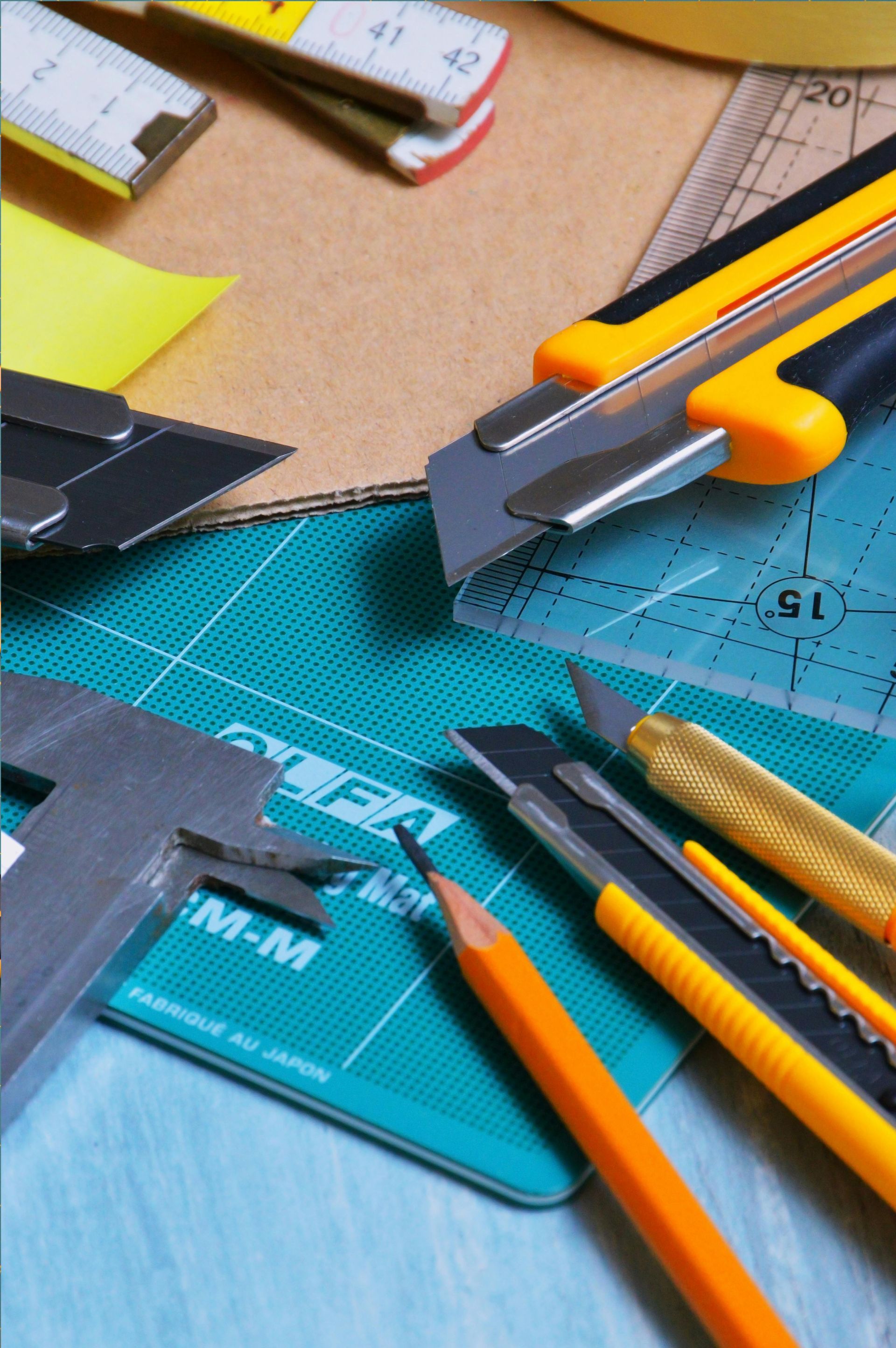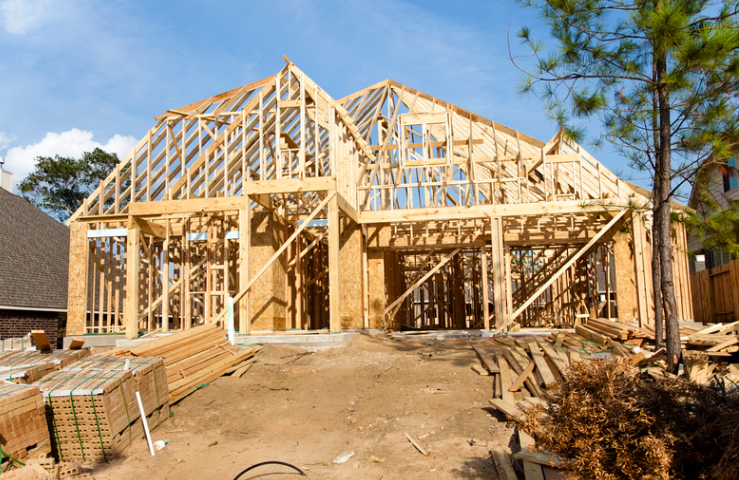Single Close Construction Loans in Oregon

Building your dream home can be fun but overwhelming. For many Oregonians, financing the construction of a new home can be tricky. But single close construction loans can make the process easier. This article will walk you through single close construction loans, so you understand how they work and the benefits.
What is a Single Close Construction Loan?
A single close construction loan, also known as a construction-to-permanent loan, is a loan that combines the construction loan and the permanent mortgage into one loan. You only have one closing which saves time and money.

How Does a Single Close Construction Loan Work?
The Process
The process for a single close construction loan is:
- Application and Approval: You apply for the loan and get approved based on your credit, income, etc.
- Construction Phase: The construction phase starts, and the lender pays the builder as the construction progresses.
- Permanent Financing: Once construction is complete the loan converts to a permanent mortgage.
Benefits
Single close construction loans have many benefits:
- One Closing: You save on closing costs and avoid multiple loan processes.
- Interest Only Payments: You pay interest only during the construction phase which can be more affordable.
- Fixed Interest Rates: Many single close construction loans have fixed interest rates, allowing you to lock in the interest rate before construction begins, so your monthly payments are stable.

Interest Only Payments During Construction
One of the biggest benefits of single close construction loans is the interest only payment structure during the construction phase. That means you only pay interest on the amount disbursed not the full loan amount. That can save you a lot of money during construction.
Closing Costs and How to Save
Closing costs for single close construction loans can be lower than separate loans. By combining the construction loan and permanent mortgage into one you avoid paying closing costs twice.
How to Save
- Shop Around: Compare offers from different lenders to get the best rates and terms.
- Negotiate Fees: Some closing costs are negotiable so don’t be afraid to ask for lower fees.
- Use Land Equity: If you already own the land, you can use it as equity to reduce your down payment.
Permanent Financing: From Construction to Permanent Loan
When your home is complete the loan converts to a permanent mortgage. No second loan and no second closing.
Locking in your interest rate before construction begins can provide financial stability and predictability for your permanent mortgage.
Permanent Loan Options
There are many permanent loan options:
- Fixed Rate Mortgages: Stable monthly payments and protection from rising interest rates. This option allows you to lock in your interest rate, providing protection from rising interest rates.
- Adjustable-Rate Mortgages (ARMs): Start with lower interest rates that adjust over time.

FHA Loan Programs
FHA has loan programs for single close construction loans. These programs have more lenient eligibility requirements so borrowers with lower credit scores or higher debt to income ratios can qualify.
Construction Phase
The construction phase is the most important part of the loan process. During this time the lender pays the builder as the construction progresses. Inspections are done regularly to ensure the work is being done according to plan.
Interim Construction Loan
An interim construction loan is a short-term loan to finance the construction phase. With a single close construction loan this is all rolled into the overall loan so it’s easier.
Home Builders
Choosing a good builder is key to the success of your construction project. The lender will require detailed plans and cost estimates before approving the loan. Work with experienced home builders who have a history of completing projects on time and on budget.

Eligibility Requirements for Single Close Construction Loans
Credit History and Minimum Credit Score
Lenders will check your credit history and require a minimum credit score for single close construction loan. While requirements vary a higher credit score can get you better interest rates.
Debt to Income Ratio
Your debt-to-income ratio is another factor. This is the ratio of your monthly debt payments to your gross monthly income. A lower ratio means you’re in a better financial position and more likely to get approved.
Down Payment and Loan Amount
The down payment for a single close construction loan can vary by lender and loan program. Using land equity as part of your down payment can reduce the amount of cash needed upfront. The loan amount will be based on the construction cost and value of the completed home.
Application and Documentation
The application process for a single close construction loan involves:
- Bank Statements: To prove your income.
- Tax Returns: To verify your income.
- Promissory Note: A legal document that outlines the loan terms and payment schedule.
Loan Term
The loan term for a single close construction loan includes the construction phase and the permanent mortgage. The construction phase is 6-12 months, and the permanent mortgage is 15, 20 or 30 years.

Building Materials and Construction Costs
Building materials can be a big part of your construction budget. Get detailed estimates and factor in price fluctuations. The lender will require a detailed budget before approving the loan.
Eligible Veterans and VA Loans
Eligible veterans can use VA loans for single close construction financing. VA loans have great terms, no down payment and lower interest rates so home construction is more accessible for veterans.
Build Your Dream Home
A single close construction loan is the easy way to finance your dream home. By rolling the construction loan and permanent mortgage into one you simplify the loan process, save on closing costs and simplify your finances.
Single Close Construction Loans vs Traditional Mortgages
Two Loans vs One
Traditional mortgages require two loans, one for construction and one for permanent financing. With two loans you have two applications, two closings and potentially more costs. Single close construction loans eliminate all that complexity with one loan and one closing.
Traditional Mortgage Options
If you prefer traditional mortgages, options are conventional loans, FHA loans and VA loans. Each has its own requirements and benefits so be sure to compare to find what’s best for you.

Fixed Rates vs Adjustable Rates
One of the biggest decisions when getting a single close construction loan is fixed rates vs adjustable rates. Fixed rates give you stability and predictability while adjustable rates give you lower initial payments, but risk of rate increases down the road.
Choosing a fixed interest rate can provide stability and predictability for your monthly payments, while an adjustable rate may offer lower initial payments but comes with the risk of rate increases.
The Lender
The lender is key to the single close construction loan process. They’ll guide you through the application, approval and disbursement process so funds are available when needed and the construction project stays on track.

Summary
Single close construction loans is the easy way to finance home construction in Oregon. By understanding the loan process, eligibility and benefits you can make informed decisions to get closer to building your dream home. Whether you’re a first-time homebuilder or an experienced homeowner, single close construction loans give you the flexibility and convenience to make your dream a reality.
Definitions
- Single Close Construction Loan: One loan for construction and permanent financing.
- Interest Only Payments: Payments during construction phase based on the amount disbursed.
- Permanent Financing: The loan converts to a permanent mortgage after construction.
- Federal Housing Administration: Loan programs with flexible requirements.
- Construction Phase: The period of time the home is being built and funds are being disbursed to the builder.
- Loan Amount: Based on construction cost and value of the completed home.
- Minimum Credit Score: Required to qualify for the loan.
- Debt to Income Ratio: Monthly debt payments to gross monthly income.
- Down Payment: Initial payment to secure the loan, can be reduced with land equity.
- Fixed Interest Rates: Stable monthly payments.
- Adjustable Rates: Lower initial payments with potential rate increases down the road.
- Lender: Guides you through the loan process and disburses funds.











